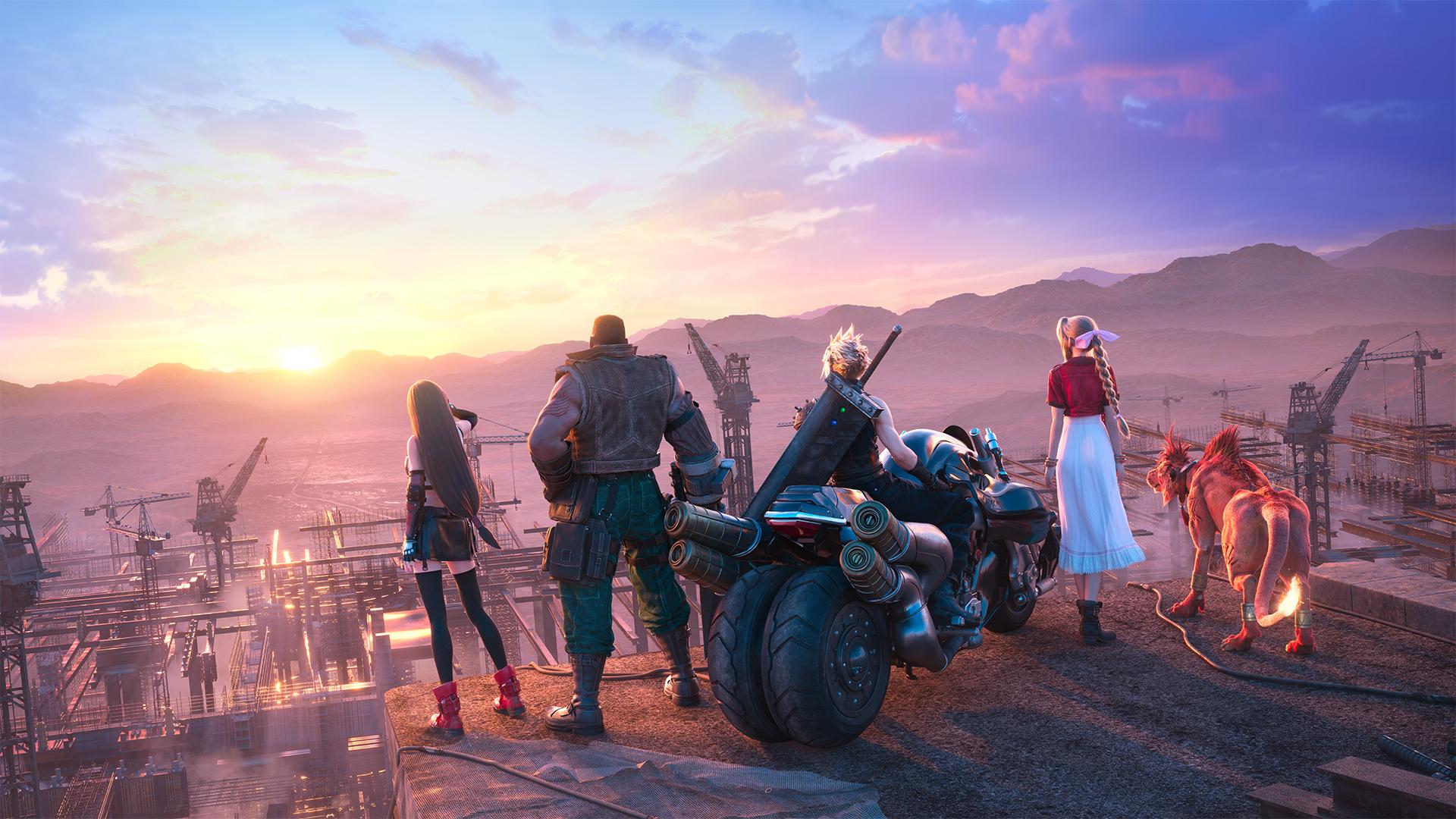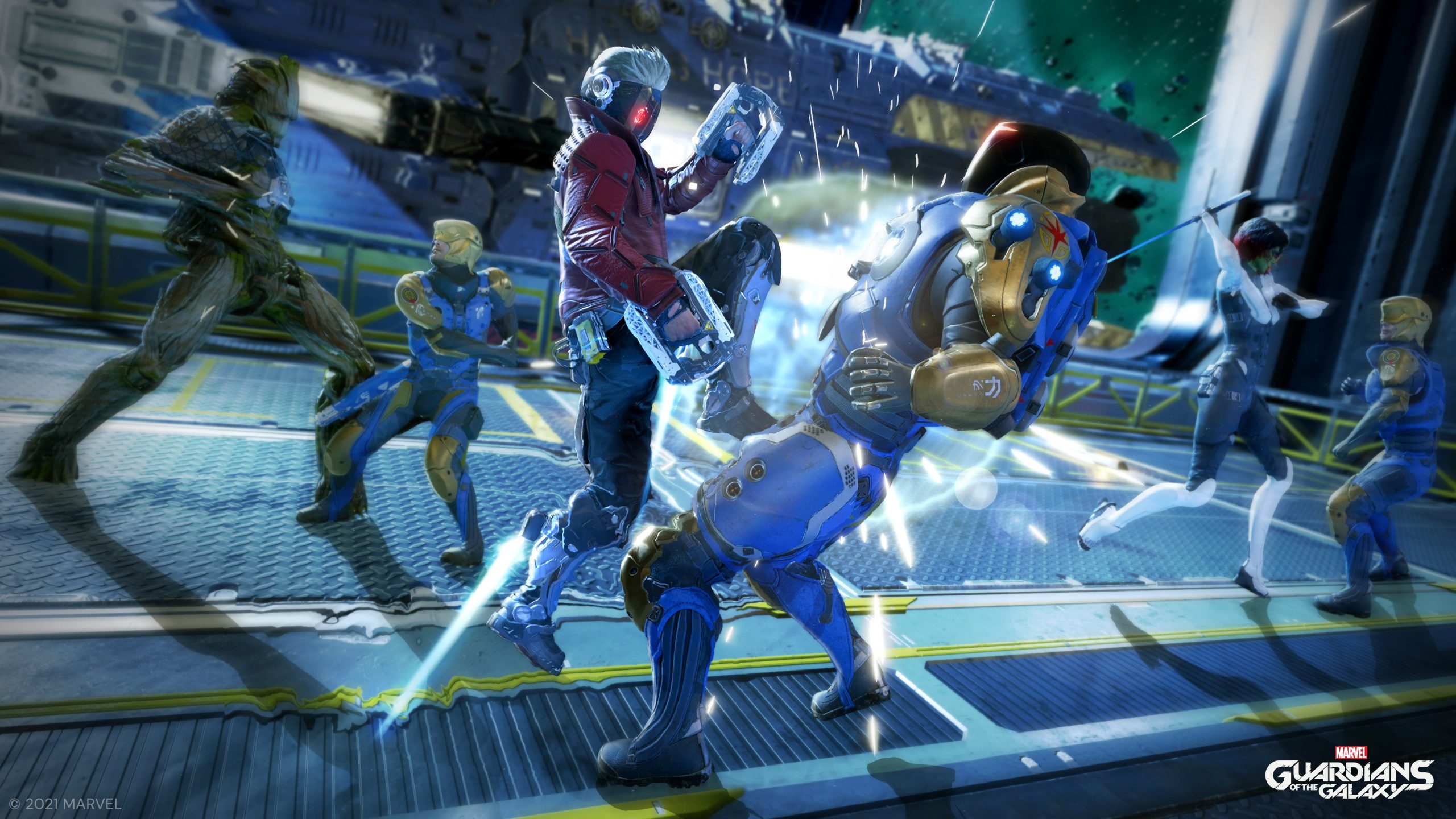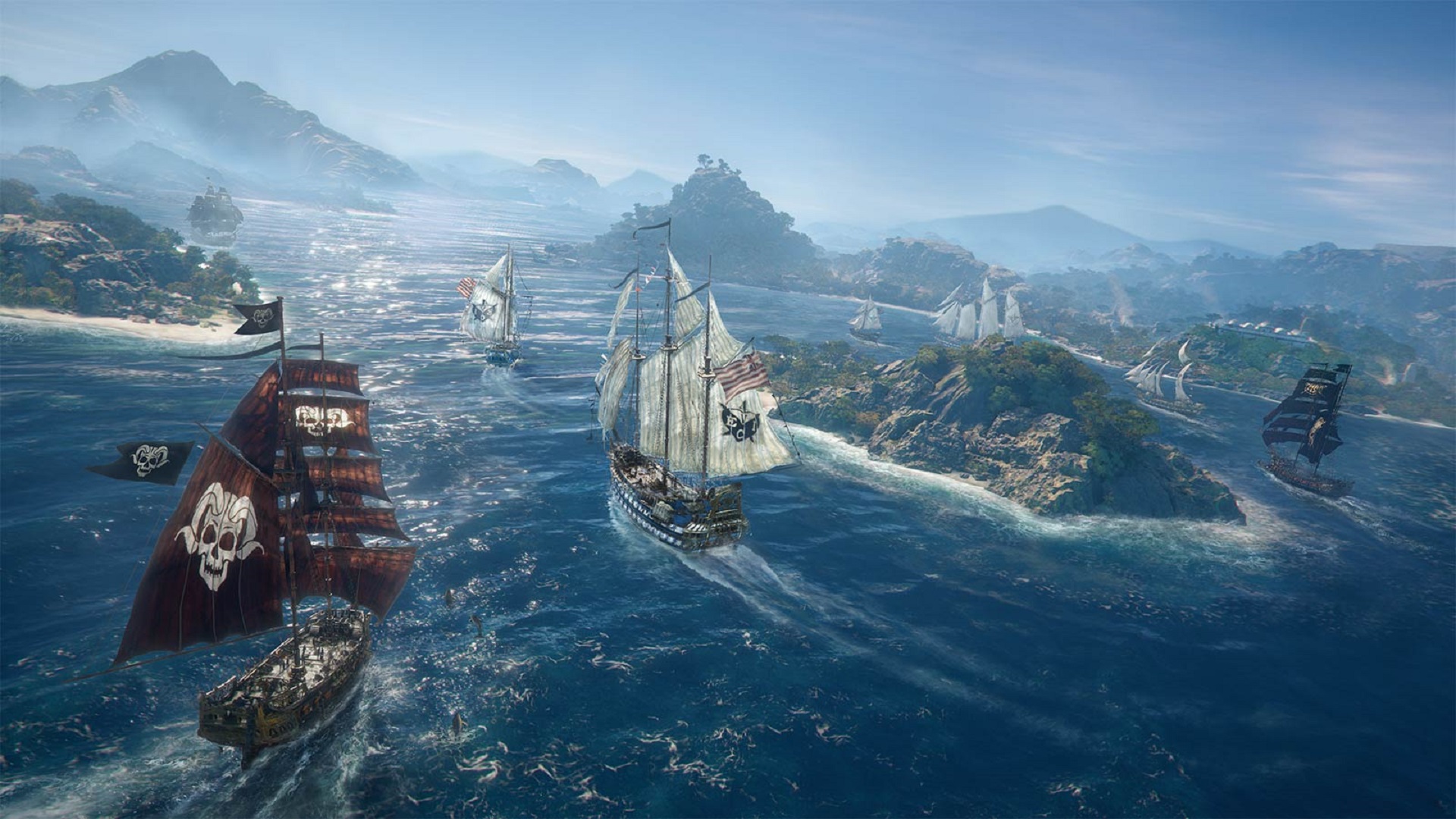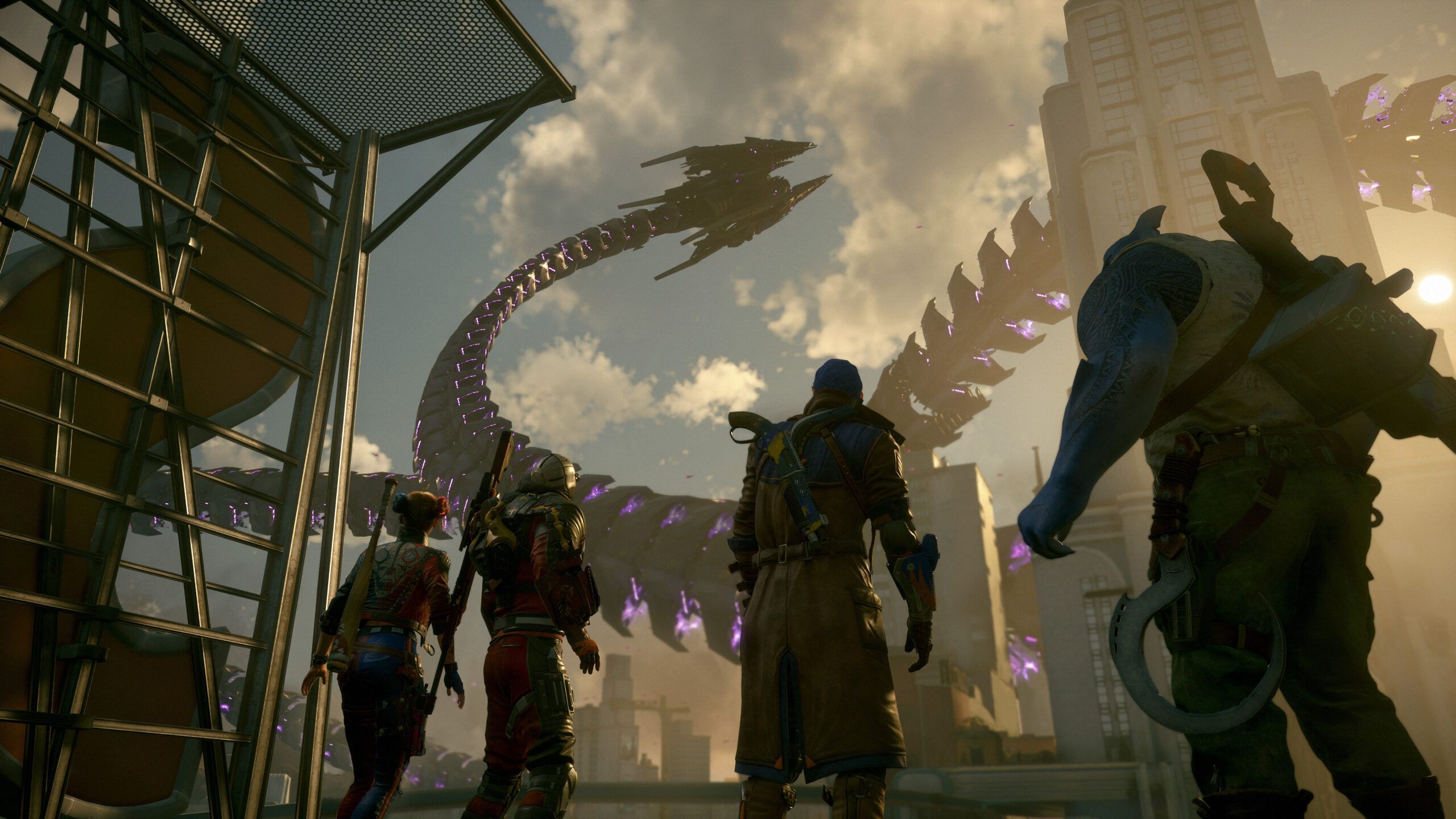
The acquisitions race has escalated to a point that no one could have predicted until not that long ago. Individual studios big and small were already getting picked up left, right, and center, but Microsoft turned the heat up when it acquired all of ZeniMax Media, and in turn, Bethesda Softworks. That was a big move, bigger than anyone could have anticipated at the point, with one of the biggest multiplatform third party publishers getting gobbled up by a platform holder wholesale, leading many to wonder how such a massive deal had even been put in place.
But you know what they say- there’s always a bigger fish. Since Xbox’s acquisition of Bethesda, Microsoft has announced that it’s also acquiring Activision Blizzard, which makes even the Bethesda deal look miniscule in comparison. And while Microsoft remains the only company in the industry to have taken things to that level until now, others have also made major moves of their own. Sony, for instance, continues to pick up studios at an increasing pace, with the Bungie acquisition earlier this year being the biggest deal of the lot. Recently, the Embracer Group also confirmed that it’s taking Square Enix’s North American business, including studios like Crystal Dynamics and Eidos Montreal and IPs like Deus Ex and Tomb Raider.
One thing has become abundantly clear over the last year or so- when it comes to acquisitions, right now, there are no rules. Well, maybe there are some rules. No one’s going to acquire Nintendo. But the big third party publishers that we all thought were completely safe, either because they were too big or too costly to be picked up by anyone, are just as likely to be candidates for an acquisition as anyone else. Microsoft and Sony are both far from done, and other major companies are also still looking to expand inorganically with more cash splurges, including the likes of Tencent, NetEase, and the aforementioned Embracer Group.
The natural question to ask now, then, is- who’s next? In an ideal world, no one would be next. In an ideal world, even the acquisitions that have happened so far would not have happened. Every single industry thrives when it has many voices, many identities, many players. Competition is the thing that drives growth more than almost anything else, and consolidation is the enemy of competition. But that’s a different topic altogether. Right now, we have little choice but to accept that this is happening, and is going to continue to happen. So who is it going to happen to next? Who’s the next Bethesda? The next Activision?
It’s obviously impossible to make a hundred percent accurate prediction on that front without a crystal ball, but we can take a look at some of the biggest players in the industry right now, the state that they’re in, the value that they posses, and with all of that in mind, how likely (or unlikely) it is that they’ll be acquired by one of the bigger fishes. And a couple of names that do jump out more than the others in these discussions right now are Square Enix and Ubisoft. For both companies, it’s easy to see why that is the case, because neither is in perfect shape right now, and not being in perfect shape is how something as big as Activision Blizzard ended up being sold.
Let’s talk about Square Enix first. With the likes of Final Fantasy, Dragon Quest, Kingdom Hearts, and so much more under its belt, this is a company that possesses some of the biggest and most prestigious franchises. There’s no denying that any of the big players we mentioned earlier will be eyeing the company hungrily. Square Enix itself, meanwhile, might not be entirely averse to the idea of such a deal either. Having recently trimmed the fat of its North American business – which, let’s face it, was never handled very well by the company anyway – the Japanese publisher is looking leaner and much more attractive as an acquisition target right now. And new ownership could certainly help the company out, because honestly, it hasn’t exactly been making the best business decisions.
Selling its entire North American business for just $300 million is a move that caught many off-guard, especially when you look at everything that was included in that deal, and even more shocking is the fact that Square Enix plans to invest the money it’s getting from that deal into blockchain (alongside cloud technology and AI). Meanwhile, this is also the company that has greenlit and released a number of absolutely atrocious games in recent years, including the likes of The Quiet Man, Left Alive, Balan Wonderworld, Babylon’s Fall, and more. This is the company that took Marvel’s Avengers, a game that should have been a huge critical and commercial success, and turned it into a failure on both fronts.
This is the company that has made a number of terrible marketing and publishing decisions that have affected the sales of games that should have sold more but ended up underperforming, with the likes of NEO: The World Ends with You, Marvel’s Guardians of the Galaxy, Deus Ex: Mankind Divided, the Tomb Raider trilogy, and many more having underperformed on the commercial front. Other than Final Fantasy, Dragon Quest, Kingdom Hearts, and NieR, pretty much everything else the company has touched over the last few years has turned sour. The opposite of Mida’s touch. So yeah, maybe their judgment is impaired, and maybe they’re looking for someone to come in, given them a bunch of cash, take the reigns, and steer the ship into smoother waters.
Ubisoft, meanwhile, hasn’t been faring so well either. 2020 saw multiple reports shedding light on the company’s problematic toxic workplace culture, revealing its long-standing and persistent issues with harassment of employees, among other things. That, of course, is not too dissimilar to Activision’s situation. Stuff like that is bound to affect a company- your stock gets devalued, you begin bleeding talent, you struggle to hire new employees, and all in all, your current and future projects end up getting adversely affected. That’s been abundantly clear over the last couple of years. Just look at all the Ubisoft games that have been delayed, and how many times they have been delayed.
But when it rains, it pours, and Ubisoft has attracted plenty of bad press for other reasons as well. The company has announced a number of games that have been criticized widely almost as soon as they were revealed, with the likes of XDefiant and Ghost Recon Frontline being prime examples. Then you have projects like Skull and Bones and Beyond Good and Evil 2, which have ben in development for what feels like ages, and will be in the works for a lot longer- especially Beyond Good and Evil 2, which, unlike Skull and Bones, shows no signs of being any closer to launch than it was, say, a couple of years ago. Add to all of this Ubisoft’s insistence on investing in NFTs (and then lamenting the fact that people just don’t understand that they’re doing this for the players’ own good when they get universally lambasted) hasn’t exactly helped put the company in a better light.
Interestingly, Ubisoft might not be as ready and willing to be acquired by someone as Activision Blizzard may have been when its own troubles started not that long ago. Not too long ago, Ubisoft CEO Yves Guillemot said that the company was more than capable of continuing to sustain itself, but that it would review and consider acquisition offers if any came in. Recent reports, however, have indicated that the Guillemot family is looking to partner with a private equity firm in a move that will allow it to block any potential future takeovers. Ubisoft has fought off suitors in the past as well, and it’s possible that it’ll want to do so again, especially with the Guillemots in charge. Then again, the company is obviously going to be a much cheaper purchase than something like Activision Blizzard, so maybe that’ll be a much easier roadblock to overcome for someone like, say, Microsoft, who has a seemingly endless pool of money to throw at acquisition targets.
Beyond Ubisoft and Square Enix, there’s another major third party publisher that has come up quite often in discussions about acquisitions over the last couple of years- WB Games. WarnerMedia and Discovery’s merger has, of course, really kicked those conversations into gear, but there has been no shortage of leaks and rumours that have suggested that Warner Bros. Interactive is looking to offload its gaming business. Things here are a little trickier though.
Where the likes of Ubisoft, Square Enix, Bethesda, and Activision have valuable IPs to offer as key assets, WB Games’ position is quite unique in that, first and foremost, it’s a label that relies on licensed properties. DC franchises, The Lord of the Rings, Harry Potter, and more are WB Games’ bread and butter, and even if Warner were to sell of its studios, it’s obviously not going to sell those properties. The alternative would be to sell timed and renewable licenses- but that means that a potential buyer is spending additional money to be able to make games based on a property that it does not own, which inherently gives it less value in their eyes.
Of course, there’s no denying that studios like Rocksteady have immense value, and anyone would want to have that kind of talent and a developer of that pedigree under their belt. But if all you’re getting is Rocksteady, and not a Rocksteady that’s free to go ahead and make the next Batman game, the next Suicide Squad game, or even that Superman game that everyone so desperately wants, is that a deal that’s worth a heavy investment? That’s something that Warner is going to have think about if it is indeed looking to offload its studios, and it’s something that potential buyers will have to think about as well. NetherRealm Studios and Mortal Kombat will be a much more straightforward sale though, so there’s that to consider.
Beyond these three, when you look at some of the other major publishers in the market, it’s anyone’s best guess as to which (if any) of them could be targeted by some of the bigger players in the industry. Capcom is a name that comes up often, but Capcom is thriving and riding the high of some of the biggest commercial successes in its histories. Resident Evil and Monster Hunter are enjoying incredible critical and commercial success, beloved franchises are being brought back to great success, new IPs and initiatives are taking off more often than not, and all in all, there isn’t a lot of bad press for the company to deal with. Does that make a Capcom acquisition impossible? In a world where Activision Blizzard can be acquired, nothing is impossible, but Capcom being picked up by some other company sure does look quite unlikely at this point.
One acquisition that does look close to impossible is Take-Two Interactive. There’s absolutely no reason for the company to even consider getting picked up right now. The parent company of Rockstar, Private Division, and 2K Games, Take-Two Interactive has been flying high for a while, and will undoubtedly continue to do so for some time to come. The company has numerous sources of massive income, Grand Theft Auto being chief among them. Perhaps more so even than Activision, this is one major third party multiplatform publisher that seems simply too big to be acquired. Again, you can never be too sure about anything, but if you were a betting person, you wouldn’t be rushing to place your bets on a Take-Two sale anytime soon.
The unpredictability of the games industry, especially when it comes to acquisitions, makes it impossible to say with any real certainty which company will be the one to follow in Bethesda and Activision’s footsteps next. There are plenty of candidates that look likely, but at the same time, there’s the fact that even unlikely candidates can’t be completely ruled out either- and these are the sort of deals that get sprung on you out of nowhere, so this isn’t always the sort of stuff that you see coming a mile away. One thing that cannot be denied, however, is the fact that there is surely going to be another major publisher acquisition in the not-too-distant future. Who will that publisher be? Who will acquire them? That remains to be seen.
Note: The views expressed in this article are those of the author and do not necessarily represent the views of, and should not be attributed to, GamingBolt as an organization.


















